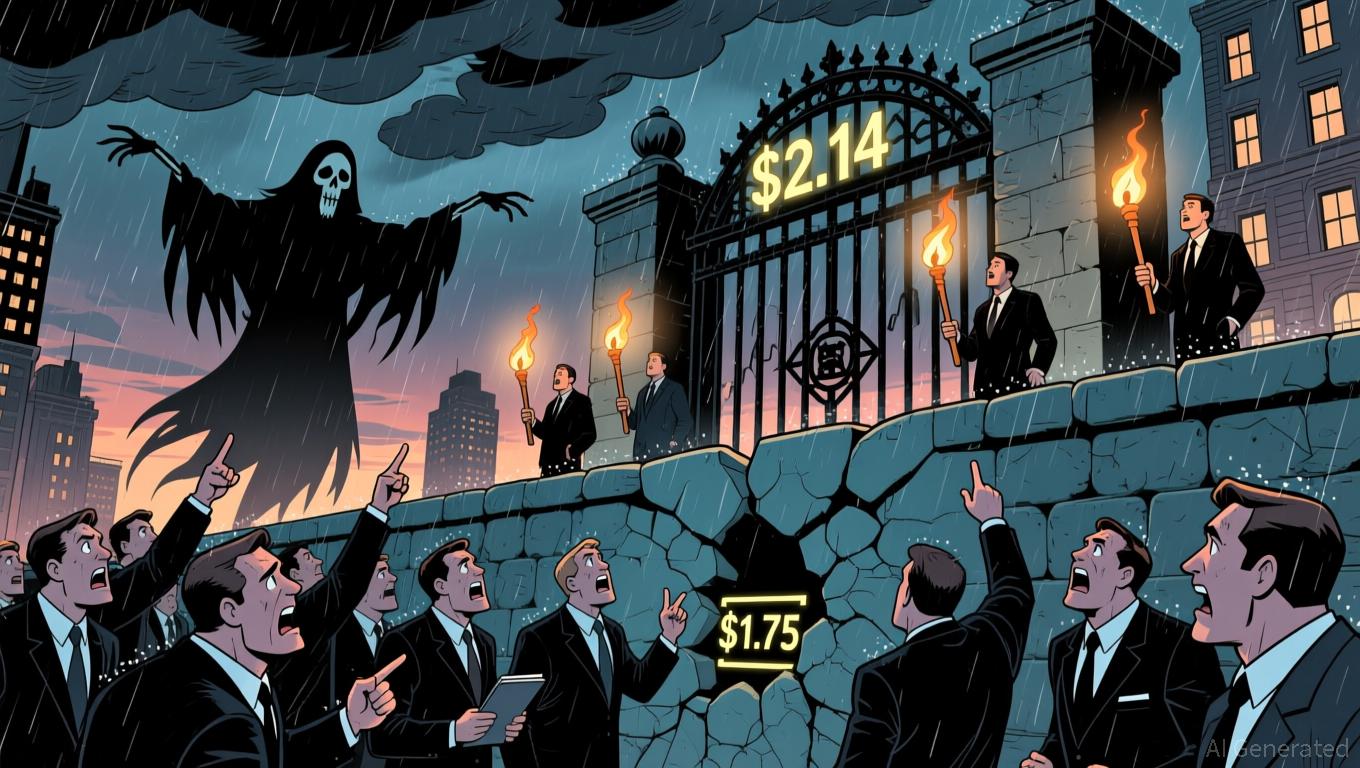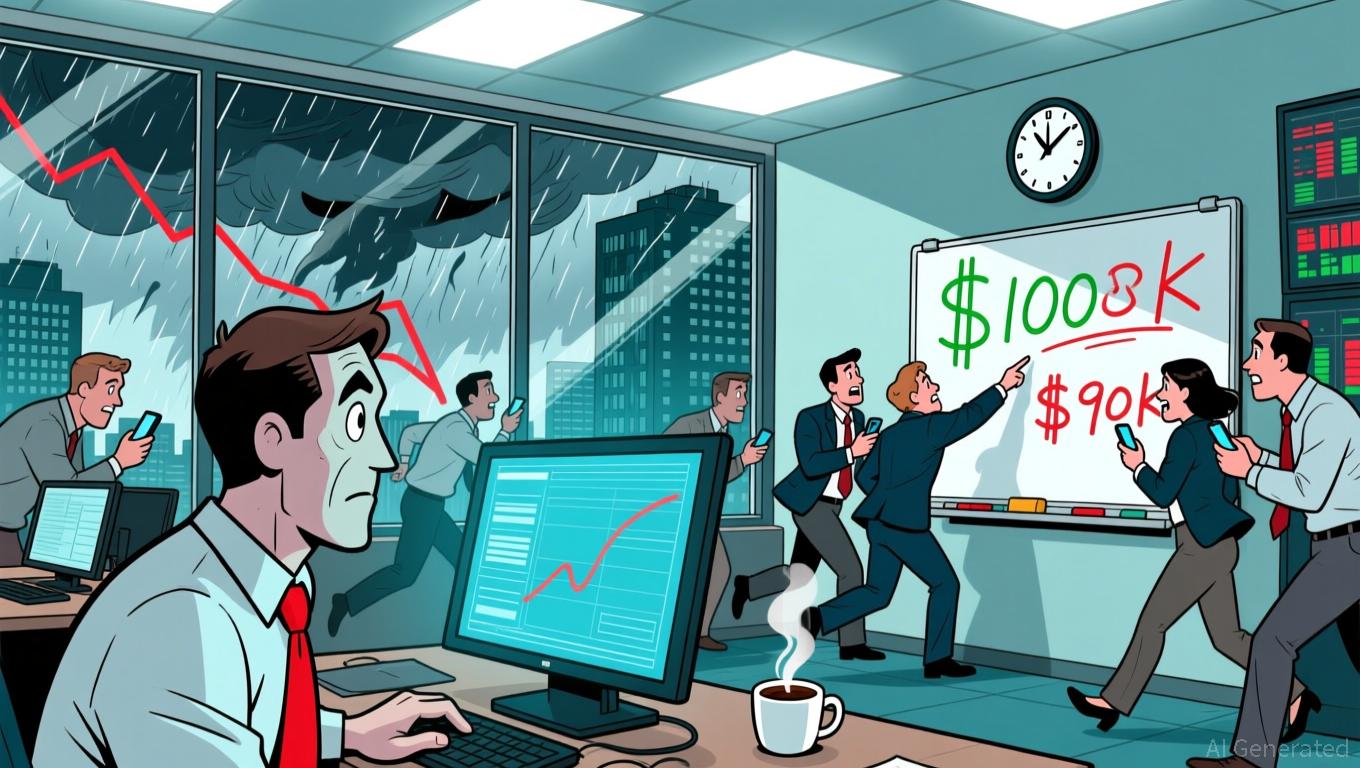ZKC has dropped by 4181.57% over the past year as a result of market fluctuations and increased regulatory oversight.
- ZKC plummeted 4181.57% in one year, with sharp declines over shorter periods. - Regulatory investigations and enforcement actions over non-compliance and market manipulation allegations have intensified, triggering a sell-off. - Authorities froze key ZKC accounts, eroding investor confidence and accelerating the decline.
As of September 27, 2025,
In recent weeks, regulatory scrutiny of ZKC has increased, with authorities launching several enforcement actions due to violations of disclosure rules and accusations of manipulating the market. These regulatory moves have led to widespread selling, heightening worries about the project's governance and transparency. Reports indicate that officials have frozen a number of accounts linked to ZKC’s main operations, further undermining investor trust and hastening the asset’s decline.
From a technical standpoint, ZKC’s price chart shows a breach of significant support zones, with the asset now hovering near its lowest levels in years. The 200-day moving average has consistently acted as resistance, and trading volume has spiked following the recent sell-off, reflecting weak buying interest. Experts warn that if ZKC cannot close above $0.60, which would signal a breakdown from its latest consolidation phase, further losses may be likely.
Disclaimer: The content of this article solely reflects the author's opinion and does not represent the platform in any capacity. This article is not intended to serve as a reference for making investment decisions.
You may also like
XRP News Update: XRP ETF Buzz vs. Death Cross: Can the $1.75 Support Level Remain Intact?
- XRP faces critical junctures near $2.14 as Grayscale's spot ETF (GXRP) launch looms, with $1.75 support level pivotal for short-term stability. - A death cross pattern raises bearish concerns, suggesting potential 55% price drop to $1 if technical indicators fail to hold. - Institutional crypto products like Leverage Shares' 3x ETFs and 1inch's liquidity pools highlight growing institutional interest amid market volatility. - DeFi struggles with $12B idle capital while projects like Mutuum Finance aim to

Bitcoin Updates: Negative Derivatives Meet Optimistic Institutions as Bitcoin's Future Remains Uncertain
- Bitcoin fell below $85,500 amid bearish derivatives positioning, macroeconomic uncertainty, and dormant wallet sell pressure, with puts dominating calls at $85,000 strike price. - Institutional bulls like Michael Saylor's Strategy reported $2.8B Q3 profits from BTC holdings and pledged continued accumulation during the slump. - The Bitcoin for America Act proposes tax payments in BTC without capital gains liability, aiming to create a Strategic Bitcoin Reserve and modernize U.S. finance. - Derivatives pl

Bitcoin Experiences Sharp Decline as Macroeconomic Conditions Change: The Impact of Increasing Interest Rates and Heightened Regulatory Oversight on Cryptocurrency Values
- Bitcoin's 2025 late-year drop from $126,000 to $80,000 reflects heightened sensitivity to Fed policy shifts and regulatory pressures. - Fed officials like Susan Collins signaled "mildly restrictive" policy, crushing rate cut expectations and triggering 70% decline in December cut odds. - Regulatory crackdowns on crypto mixing and mining contrasted with institutional buying (e.g., Cardone Capital's $15. 3M Bitcoin purchase) amid market volatility. - Political uncertainty (60% expect Trump-era crypto gains
Bitcoin’s Abrupt Price Swings and Institutional Outflows: An In-Depth Analysis of Market Dynamics and Liquidity Challenges
- Institutional investors are shifting capital from Bitcoin to AI infrastructure, driven by higher returns in 2025. - Bitcoin's liquidity has declined, with order book depth dropping to $14M by mid-2025, exacerbating volatility. - Structural shifts, including mining repurposing and AI-focused capital flows, threaten Bitcoin's hash rate and market stability. - Alternative projects like XRP Tundra and AI-driven risks challenge Bitcoin's dominance, complicating investor strategies.